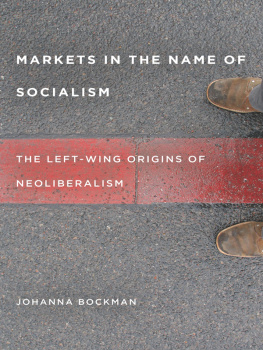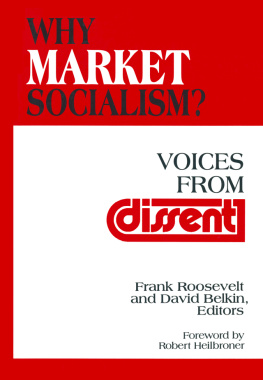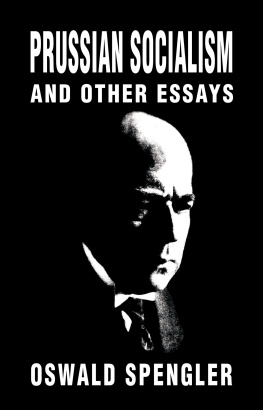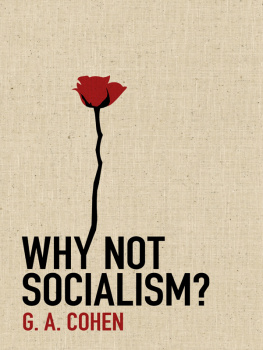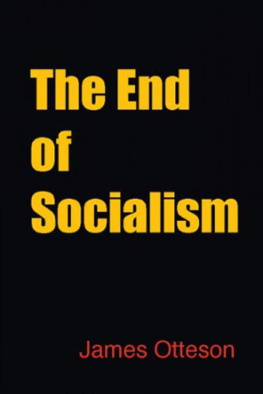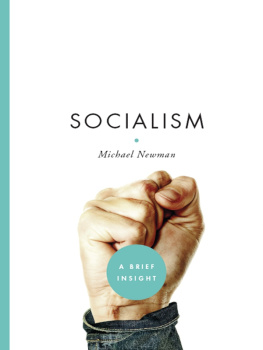Bockman - Markets in the Name of Socialism
Here you can read online Bockman - Markets in the Name of Socialism full text of the book (entire story) in english for free. Download pdf and epub, get meaning, cover and reviews about this ebook. year: 2011, publisher: Stanford University Press, genre: Politics. Description of the work, (preface) as well as reviews are available. Best literature library LitArk.com created for fans of good reading and offers a wide selection of genres:
Romance novel
Science fiction
Adventure
Detective
Science
History
Home and family
Prose
Art
Politics
Computer
Non-fiction
Religion
Business
Children
Humor
Choose a favorite category and find really read worthwhile books. Enjoy immersion in the world of imagination, feel the emotions of the characters or learn something new for yourself, make an fascinating discovery.
Markets in the Name of Socialism: summary, description and annotation
We offer to read an annotation, description, summary or preface (depends on what the author of the book "Markets in the Name of Socialism" wrote himself). If you haven't found the necessary information about the book — write in the comments, we will try to find it.
Markets in the Name of Socialism — read online for free the complete book (whole text) full work
Below is the text of the book, divided by pages. System saving the place of the last page read, allows you to conveniently read the book "Markets in the Name of Socialism" online for free, without having to search again every time where you left off. Put a bookmark, and you can go to the page where you finished reading at any time.
Font size:
Interval:
Bookmark:
Markets in the Name of Socialism
The Left-Wing Origins of Neoliberalism
Johanna Bockman
Stanford University Press
Stanford, California
Stanford University Press
Stanford, California
2011 by the Board of Trustees of the Leland Stanford Junior University.
All rights reserved.
No part of this book may be reproduced or transmitted in any form or by any means, electronic or mechanical, including photocopying and recording, or in any information storage or retrieval system without the prior written permission of Stanford University Press.
Printed in the United States of America on acid-free, archival-quality paper
Library of Congress Cataloging-in-Publication Data
Bockman, Johanna, author.
Markets in the name of socialism : the left-wing origins of neoliberalism / Johanna Bockman.
pages cm
Includes bibliographical references and index.
ISBN 978-0-8047-7566-3 (cloth : alk. paper)
1. NeoliberalismHistory. 2. Neoclassical school of economicsHistory. 3. Marxian economicsHistory. 4. SocialismHistory. I. Title.
HB95.B63 2011
320.51dc22 2010045298
Typeset by Thompson Type in 11/13.5 Adobe Garamond
E-book ISBN: 978-0-8047-7896-1
IN FALL 1988, I ARRIVED IN BUDAPEST, Hungary as an exchange student through the University of Californias Education Abroad Program. I fell into a situation that I did not understand but that would send my life in a new direction. Through the year, at the Karl Marx University of Economics, we exchange students studied with Hungarian scholars, who provided us new ways to understand the world, even in such courses as American literature. We took part in large protests, visits to Roma villages, evenings in underground punk clubs, panicked discussions with our Education Abroad Program directors, and the general social life of young college students, who happened to arrive in a place of historic change.
The language of our professors, who talked positively about markets, democracy, and freedom, surprised me. The American right wing had done so much to politicize these words and done such evil in Central America and elsewhere in their name. Our professors in the Karl Marx University of Economics sounded like Reagan robots. After returning to the United States and entering graduate school, I found myself drawn to trying to understand what I had experienced. What was socialism? What was capitalism? What had happened in 1989? This book is my current answer to these questions.
During my dissertation research, I discovered that Hungarians had been calling for both markets and socialism since the 1950s. For those familiar with Hungary, such a discovery was not a surprise. Yet, in the 1990s, scholars already assumed that socialism had been, and would likely always be, the centrally planned, state socialism exemplified by the Soviet Union. In this environment, a reminder of Hungarys market socialist past was important. At the same time, I found that some Hungarian economists had studied in the United States and elsewhere, exposing themselves to mainstream neoclassical economics. In the 1990s, it was important to recognize that Hungarians were not entirely isolated from the rest of the world. In my dissertation, I had assumed that this exposure to American neoclassical economics, in particular, had made Hungarian economists capitalist.
Yet I felt that I still did not understand what happened in 1989. As a postdoctoral fellow at Harvard Universitys Davis Center for Russian Studies, I began interviewing American economists who had worked with Hungarians and other Eastern Europeans during the Cold War. The economists involved in these EastWest discussions were not peripheral but rather central figures in the field. How did these Americans indoctrinate Eastern European economists into capitalism? To understand the indoctrination process, I had to understand professional economists theories and models. What were they exporting abroad? Following their connections with other economists took me to Italy and the former Yugoslavia. It also introduced me to an economics dialogue that extended throughout the first, second, and third worlds. Through years of interviews, I realized that American economists did not export neoclassical economics as an American model but rather that neoclassical economics since its beginnings offered a language that economists around the world used to talk about markets and planning, economic freedom and efficiency, capitalism and socialism.
I would not have understood economists ideas without sitting with many of them for hours over many years. These economists often found my interviews confusing and disorienting. What did I want to know? I wanted to understand their ideas, their training, their motivations, their politics, and their life in general. I found all of this essential to understanding their ideas. These economists gave me much of their time because, I believe, they wanted some answers too.
Economists voices are not directly quoted in this manuscript for several reasons. From the start, I sensed that tape recording and signing Human Subjects Review forms raised suspicions among my interviewees worldwide. One economist told me that, if I recorded our discussion, he would not tell me anything. I quickly turned to taking notes by hand and no longer thought about Human Subjects Review. Instead, I decided to use these interviews as a springboard for research, to direct me to archives and published materials. These interviews also became more like conversations. It was extremely difficult to understand what the economists were trying to tell me, both technically and politically. I slowly began to understand them and tried out my interpretations on other economists to get their feedback. Therefore, economists became more like conversation partners than interviewees.
At the same time, it is disappointing not to have a verbatim written or audio record of my interviews with these economists. Many of them have since passed away. However, I had long ago decided to interview economists as part of a process of making sense of their worlds. I felt driven to write this book because many, though by no means all, of these economists were connected in so many ways to people who had fought to change the world in liberating ways. As I wrote about Italian economics, such a potentially bland topic, my mind was full of the connections of its practitioners with Second World War antifascist partisans, with their colleagues who had lost their lives in the Soviet Union under Stalin, with Third World allies, and with official and dissident socialists worldwide. To tap into and document part of this flow of energy and experience has been exhilarating. It has also helped me to understand 1989 and socialism for myself. I thank all the economists and other individuals who spoke with me. The interpretations advanced and any errors are my responsibility alone.
The affiliations listed are those at the time of the interviews.
Luca Anselmi, University of Pisa, 2004
Kenneth Arrow, Stanford University, 2007
Abram Bergson, Harvard University, 2000
Joseph Berliner, Harvard University, 2001
Ivo Biani, University of Zagreb, 2008
Ferruccio Bresolin, Ca Foscari University, Venice, 2004
Andrs Brdy, Institute of Economics, Budapest, 1995 and 1996
Giorgio Brosio, University of Turin, 2004
Andrzej Brzeski, University of California, Davis, 2004
Anne Carter, Brandeis University, 2000 and 2001
Boidar Cerovi, University of Belgrade, 2008
Janet Chapman, formerly Harvard University, 2001
Next pageFont size:
Interval:
Bookmark:
Similar books «Markets in the Name of Socialism»
Look at similar books to Markets in the Name of Socialism. We have selected literature similar in name and meaning in the hope of providing readers with more options to find new, interesting, not yet read works.
Discussion, reviews of the book Markets in the Name of Socialism and just readers' own opinions. Leave your comments, write what you think about the work, its meaning or the main characters. Specify what exactly you liked and what you didn't like, and why you think so.

